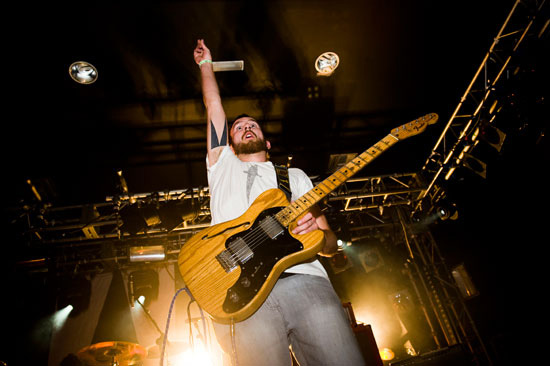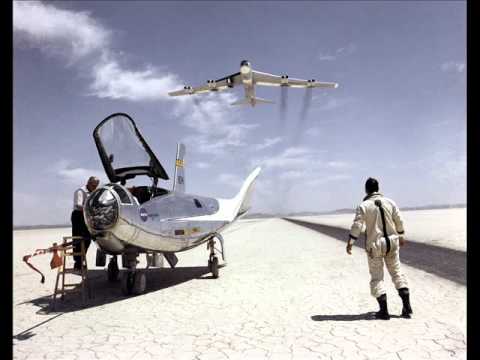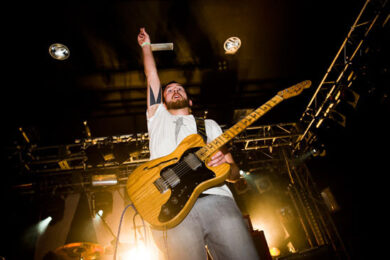Sleeping cities and sleeping citizens alike wait upon events, they attend upon narrative. They are stopped in station. They soon move on, they soon start again. – Robert McLiam Wilson, Eureka Street
I’d finally settled on a functional introduction when the whole story changed. Tony Wright left the band, replaced by Panama Kings guitarist Niall Kennedy. Despite this, And So I Watch You From Afar’s second album Gangs would still be released in the USA by Sargent House, home to Russian Circles, Hella and Omar Rodriguez-Lopez. And Wright, rolling solo, was already performing as VerseChorusVerse, teaming up to tour the UK with Jonah Matranga, previously of Far. Then Wright rejoined And So I Watch You for a single performance at the Ulster Hall in Belfast. It was a final farewell and also a celebration because they’d just been named Best Live Act in the first Northern Irish Music Awards.
But that was it. The quartet with matching tattoos and songs like ‘A Little Bit of Solidarity Goes a Long Way’ would continue without a founding member. Wright’s second-to-last show had been performed sitting down, owing to an assault in Vienna and two broken ribs. At the Ulster Hall, during ‘The Voiceless’, he was held aloft by the crowd.
“It was nice to have a proper ending,” he explained. “I didn’t do it for me or for the boys in the band, but for the people who made And So I Watch You From Afar what they are. Because without the people, believe me, we – and they – are nothing.” This idea, ‘without people you’re nothing’, is a slogan that And So I Watch You adopted from Joe Strummer. Both parties take the attitude into the future. The exact reasoning for the break is still unclear, and back in the spring there was no indication of a split. And So I Watch You From Afar were in London, launching Gangs at the Scala. By four o’clock fans were queuing round the corner.
That evening, guitarist Rory Friers insisted that And So I Watch You From Afar are not a nostalgic band, but all four – Friers, Wright, drummer Chris Wee and bassist Jonny Adger – happily shared memories of the journey so far. They had self-funded a tour of the USA and been around Europe with Them Crooked Vultures. The second record was racking up plaudits and now has featured in best of 2011 lists. “It’s the theory of diminishing returns,” Friers said. “You’ve done it once, so what’s next?”
The campaign to launch Gangs had taken in Ireland and the south coast of England, beginning in Belfast on the same Friday as the Royal Wedding. Not that they paid much heed to the blue bunting and ticker-tape parades. After returning from America they had a period of stasis waiting for Gangs to come out, a period in which they had to learn to play their own songs. Unlike their debut album, the quartet wrote Gangs in the studio and spent rehearsal time trying to match their live performance to the recorded material. The studio was Rocky O’Reilly’s space at the Oh Yeah centre in Belfast’s Cathedral Quarter. The producer was clinical. O’Reilly allowed three hours for preparation but spent six or seven fiddling around with the amplifiers and microphones.
Guitarists Friers and Wright had developed their technique, tone and style. Gangs is far more varied than their earlier music, something that comes from the sheer range of music they listen to. Wright brings the love of Strummer, but that night in London they soundchecked to Pantera. Friers explained that they’d inevitably been influenced by the Irish scene, which seems to be growing in every direction at once.
“It’s hard not to be massively inspired by Irish acts like Adebisi Shank, Bats, Cast of Cheers,” he said. “But even as early as We Are Knives and Tracer AMC. We’ve always had a thing for that alternative way of thinking about music and it really feels like there’s a wealth of it at the moment. Ireland’s really coming of age.”
And So I Watch You From Afar began in 2005 when Adger was invited to join Wright, Friers and Wee to jam in Whitepark Bay, a small town on Northern Ireland’s north coast not far from the Giant’s Causeway, where Storm Thorgerson photographed models dressed as mermaids for Led Zeppelin’s Houses of the Holy.
Nothing remains from their earliest sessions but they generated enough momentum to realise that being in a band was fun enough to be worth exploring further. Now, both ASIWYFA and VerseChorusVerse treat an album or an EP as a reason to get out on the road. “Product-wise it’s about making nice vinyl, the artwork, the tactile thing that excites us as fans,” said Friers. “As far as selling them? It’s what keeps us alive on the road.”
This is meant almost literally, as Jonny Adger discovered in Russia. They were loading in to a venue in Nizhny Novgorod, Russia’s fifth-largest city. The ground was thick with ice. After hoisting amps and equipment up two sets of stairs Adger stepped off the kerb and fell: “All my weight on my left knee. Wrecked it.”
At the hospital there was a communication breakdown. The nurses spoke no English and the local tour manager spoke a different Russian dialect. “Next thing I’m lying face-down with my pants round my ankles and a needle in my bum cheek,” he said. “I could smell plaster of Paris but nobody could tell me what was going on.”
The hospital staff didn’t realise that Adger’s quadricep had gone into shock from the impact. They plastered only half his leg in a makeshift splint. This prevented the bassist from traveling comfortably in the van, but he performed sitting down, his leg straight out.
“It was horrible,” he said. The cast lasted two nights. In a hotel room Adger’s bandmates gathered like a gang of apprentice surgeons to liberate the limb using only a corkscrew.
After Russia, they made it to the USA. Despite sharing the stage with Japanese metallers Envy and Californians Trash Talk, the expense of flights and transporting gear almost bankrupted the band. As with their earliest shows in Ireland, they lived on the line, hustling just to make it to the next town.
Friers remembers the first day. “We were standing there with our pedals and guitars and, I think, a hundred dollars in the bank. If we didn’t sell any merch we didn’t have enough to get to the next venue. That was terrifying. The album was on our minds, we knew we should have been at home recording. It was just fucking stressful.”
Chris Wee agrees. Only he and Friers had driver’s licenses, so along with tour manager Graham Smith he found himself doing shifts behind the wheel. “We were in the US for five weeks, getting money straight away for petrol. We’d spent so much getting there that everything was maxed out.”
Despite being delirious with the driving, the drummer’s eyes widen when he remembers motoring through Big Sur and Kerouac country, feeling the rain in LA, passing through Seattle and seeing the seeing the sparkle of the Pacific. In the course of one night he drove across both a time zone and the 45th parallel. It could be tense and tiring, but a small epiphany came as he sat alone in a grotty Idaho pizza place. Leaning back to look at the graffiti on the ceiling, he saw one slogan that stood out like a mantra: Fear is temporary, but regret is permanent.
Another peak experience came in Kansas, now commemorated on Gangs in the song ‘Ghost Parlor KA-6 to…’ The band had a day off and were invited to play at a tumbledown student house known as Ghost Parlor, using borrowed amps and drums. They struck up in the front room, loud enough to make the floor shake. Friers remembers people jumping off staircases. “It felt just like the shows we did growing up. All the issues and stress and Visas and travel were gone. It was just like being a real-life band again.”
Later that night, after the London show’s stage invasion, the band settled and the Scala was silent. By 2am everyone was dutifully loading out, heaving boxes down a square spiral staircase to the van outside on the Pentonville Road. Outside on the pavement, Wright strummed an acoustic guitar. Further along in the shadows Friers flipped a skateboard, letting it land with a clatter.
“I guess it’s about two things,” he said. “Progressing creatively, and being able to write. But for that to happen we’ve got to put everything into a band. If we want to write the music that we eventually want to write, we’ve got to do nothing else. And we can always just see it on the horizon. "
"We haven’t had jobs for two years,” he added, by way of a farewell. “But we’ve got to get a career out of this. We’re all getting to the age where we need to know we’re not going to be fucked for the rest of our lives.” It was time to leave central London, and as the van doors clunked shut there was nothing to suggest that the band inside were anything but united.
But it was growing cold and I remember feeling thankful that I didn’t have to travel as far as they did. The next morning meant a ten o’clock start for Bristol, with only 120 minutes allowed for the drive.
Photo by Carrie Davenport




